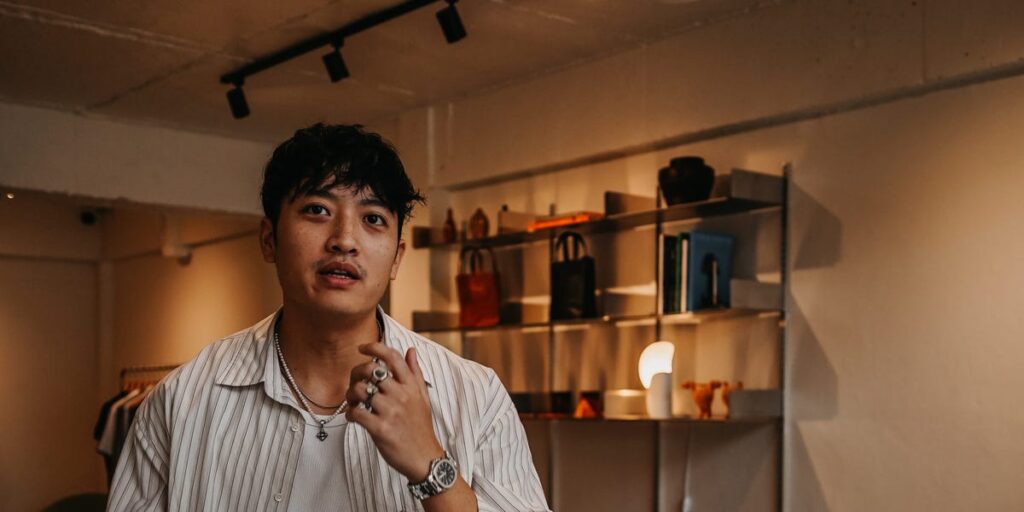This as-told-to essay is based on a conversation with Sutasit Srivisarvacha, 30, a Thai UC San Diego graduate who moved back to Bangkok. His words have been edited for length and clarity.
When I was growing up in Bangkok, getting sent off to boarding school was always the plan — the same path my parents had taken. They wanted me to experience life beyond Thailand and develop independence.
When I was 13, I started my first year of prep school on Vancouver Island in Canada. I hated it and felt homesick. I’d call home crying to my parents all the time. The weather sucked, and I remember thinking how ridiculous it was to eat rice with a knife and fork.
The turning point came in my last two years, when I finally got a good roommate. Life got easier. I started finding my own community, got into basketball, and slowly stopped fighting the reality that I was there for the long haul.
When it came time for college, I only applied to schools in California, Florida, and Texas because I was done with the cold. I ended up at UC San Diego studying social psychology.
After graduating, it didn’t feel like the right time to move back to Thailand. My parents had always encouraged me to build a life abroad, and I’d internalized that.
Provided by Sutasit Srivisarvach
UX design in California
I started my career as an SEO analyst at a digital marketing agency in San Diego. I found the work boring, but it introduced me to UX.
It clicked immediately, so I quit my job to attend an online boot camp and learn how to be a user experience designer.
From there, I landed a UX designer role at Goji Labs in Los Angeles, a small digital product agency building apps and websites. At the time, there were only 10 people, and I was the lone designer. It was a crash course, cranking out designs across multiple projects, but I loved it.
Over time, my role expanded to project manager, and I helped build the entire design organization from scratch. It was rewarding, but after three years, I burned out. I’d fallen out of love with tech.
Everything I worked on existed behind a screen, and in California, especially, there was this belief that tech could solve anything — even homelessness with an app. I didn’t buy it, and I didn’t want to be part of that culture anymore.
Provided by Sutasit Srivisarvacha
Getting creative in Bangkok
I’d always imagined that one day I’d move back to Bangkok to start my own business. When I realized I wasn’t enjoying my job, and had no relationships or pets tying me down, I decided it was time.
Last year, I took a six-month break in Bangkok to find my feet and determine my next move.
I wanted to do something tangible. At first, I thought about launching a fashion sportswear brand, but retail meant faster revenue, so I opened a men’s multi-brand store, Fewer Better Things. I saw a gap in the market: Bangkok mostly offered either high-end designer goods or cheap mass-market stuff, with little in between.
Provided by Sutasit Srivisarvacha
The store focuses on contemporary menswear, home décor, furniture, accessories, bags, grooming, and art. For me, it’s about selling an aesthetic. We source from India, the UK, Germany, Japan, Korea, and Thailand. And we don’t have an online catalog. I want people to be intentional, to come in and experience the pieces in person.
I set aside 4.5 million baht, or about $140,000, of my own savings. So far, I’ve spent 3 million baht, which covered renovations, operating costs, salary for one staff member, and inventory for 12 months.
Now, my favorite part of the day is being in the store talking to customers about design, style, and their lives.
There’s a lot of creative energy in Bangkok. People chase the things they enjoy and don’t just do things for money. It’s nothing like the hustle culture I experienced in the US.
I don’t see the point in accumulating wealth abroad. What drives me now are the things I want to create and the people I can help. If I ever launch my own brand, the products will be made in Thailand, by Thai creators, so it can generate income for locals.
Do you have a story about moving to Asia that you want to share? Get in touch with the editor: [email protected].



